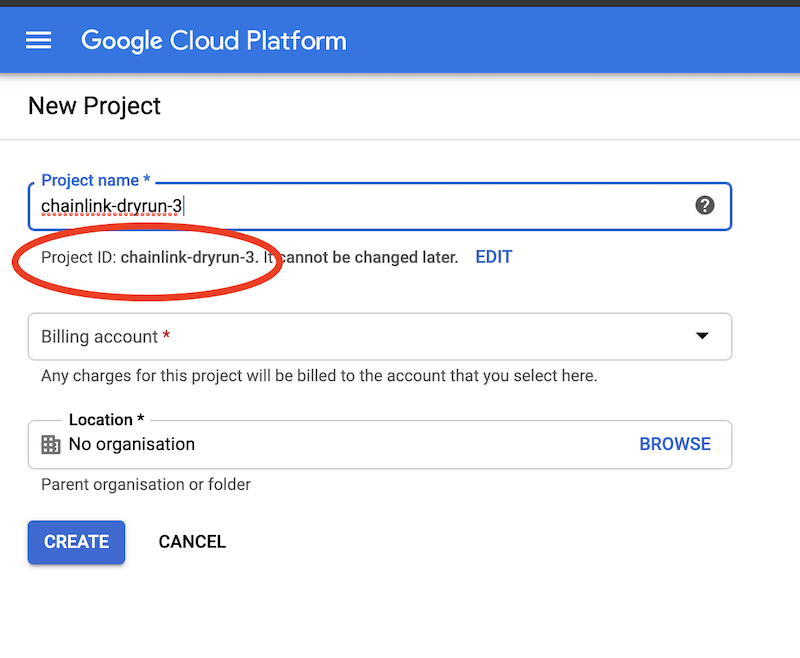This repository helps you install a high-available pool of chainlink nodes on Google Cloud Platform, running on Kubernetes. The setup follows the best practices put forward by the Chainlink documentation.
In order to have a smooth installation, it is assumed you have created a project on Google Cloud Platform and have installed and authenticated the Google Cloud SDK on your local machine.
Make sure you can run the following command to validate gcloud is installed correctly and you are authenticated with the correct Google account:
gcloud auth listYou will also need to install Terraform. This setup has been tested with version 0.12. Run the following to confirm:
terraform versionWhile all steps have been tested on Mac OS X Catalina, they should be portable to any other OS capable of running Terraform and the Google Cloud SDK.
We'll need the files in this repo, so go ahead and clone it to your local machine. If you're unfamiliar with git, download a ZIP of this repo and extract it.
git clone https://github.com/Pega88/chainlink-gcp
cd chainlink-gcpFollow Google's documentation and create a new project and enable billing on the project. Remember the project id you chose.
Run the setup.sh script passing 2 paramters:
- the project id of the project you created (not the project name). If you are unsure, you can run
gcloud projects listto get the list of your projects ids. - the email address you wish to use for your Chainlink Node login. A password will be generated and shown as output of the script.
for example
sh setup.sh chainlink-dryrun-3 admin@gmail.comThis script will prepare the environment for you with the following steps. Please have 10 minutes patience for it to complete.
- Create Google Service Account & Generate Key
- Grant Service Account access to create required resources
- Run terraform
The terraform code will:
- Create a Google Kubernetes Engine Cluster on Google Cloud
- Create a
chainlinknamespace - Deploy a postgres database in the cluster
- Deploy a Chainlink Node in the cluster
- Expose the Node using a HTTP L7 Google Cloud Global Load Balancer
To read more about the advantages of this GCLB, please visit the docs.
If you are live following the deployment from the Google Cloud Console, be aware it's expected to have pending pods or restart loops, as the chainlink node requires the postgres database to be fully initialized first. Terraform will only return when everything is fully functional, so please be patient.
The output of the script will provide you with an IP address, a chainlink node password (api-credentials) and a wallet password for your ethereum wallet of the node.
Visit the IP address to login using the email address you provided before and the password shown in the output. Please note that it can take up to 20 minutes for Google to fully provision the Load Balancer. In the meantime you can get 502 and 404 errors.
Expected output should look as follows:
Using Cloud IAP, you can protect your node running on GKE from unauthorized access even before authenticating to the node itself, without the need of a VPN connection. Using IAP, Google will ensure correct Authentication and Authorization before allowing access to the actual node. More details about the concept can be found here.
Setting up IAP requires some manual steps and is fully documented here. Be aware IAP works with HTTPS which will require you to link a domain name to the Google Cloud Load Balancer IP.
If you like this project and want to support further development:
BTC: 36PX1UfcCt3BYiVvvd6vyJM9totHPLqBzo
ETH/LINK: 0x3340F150115C2081C33eee57560E5712a19105dE

